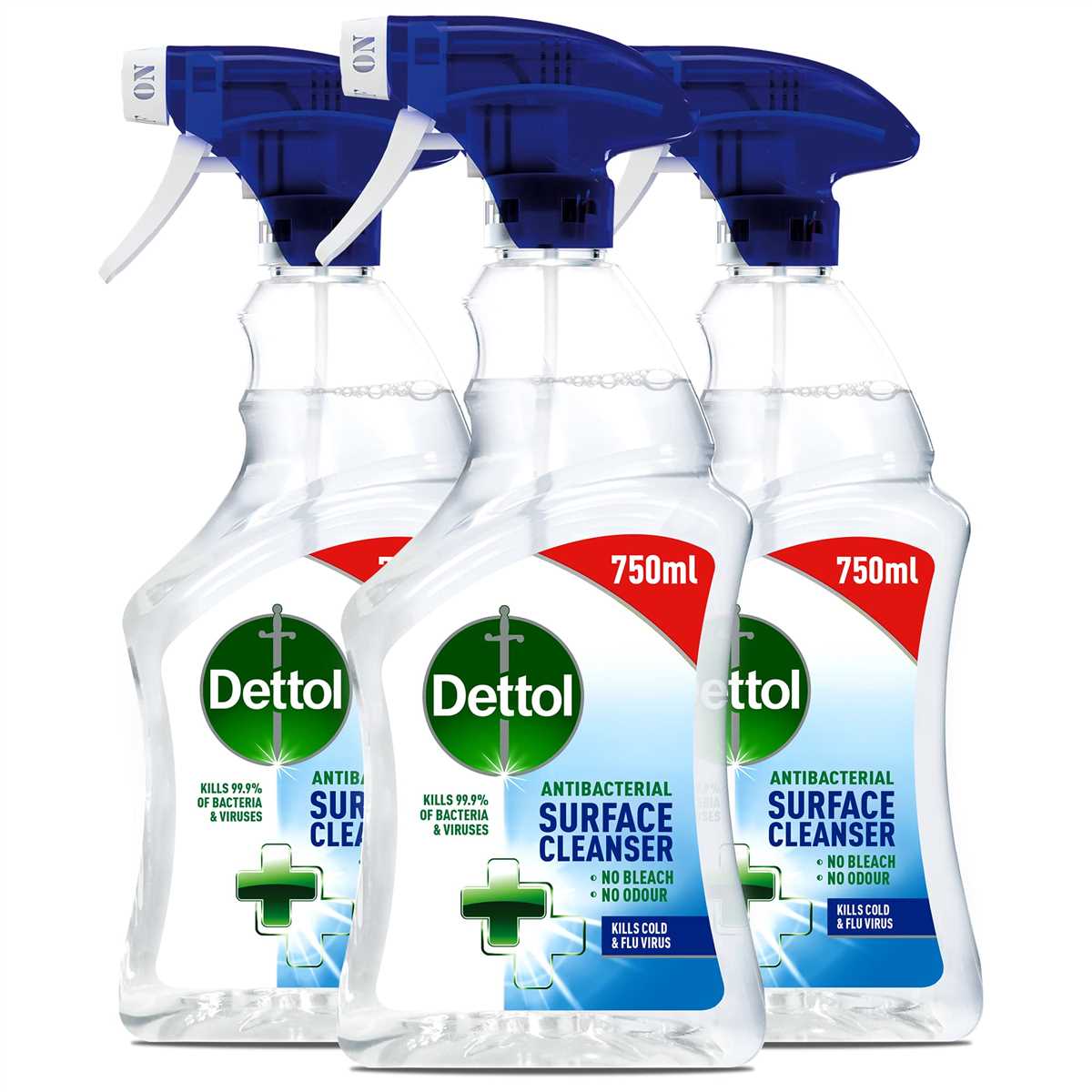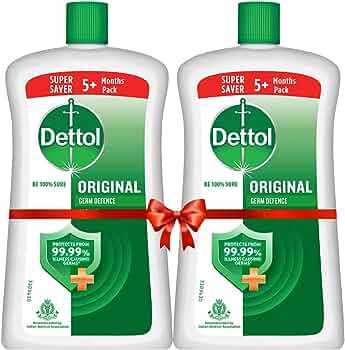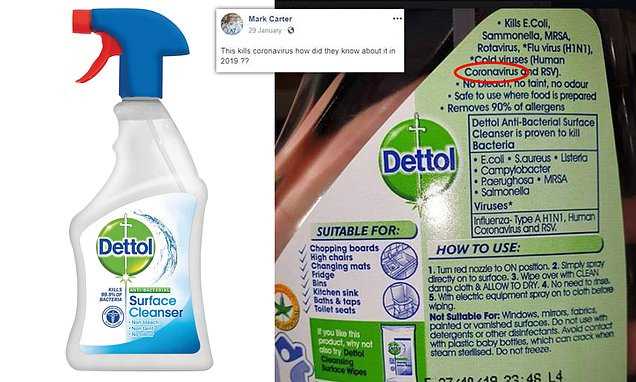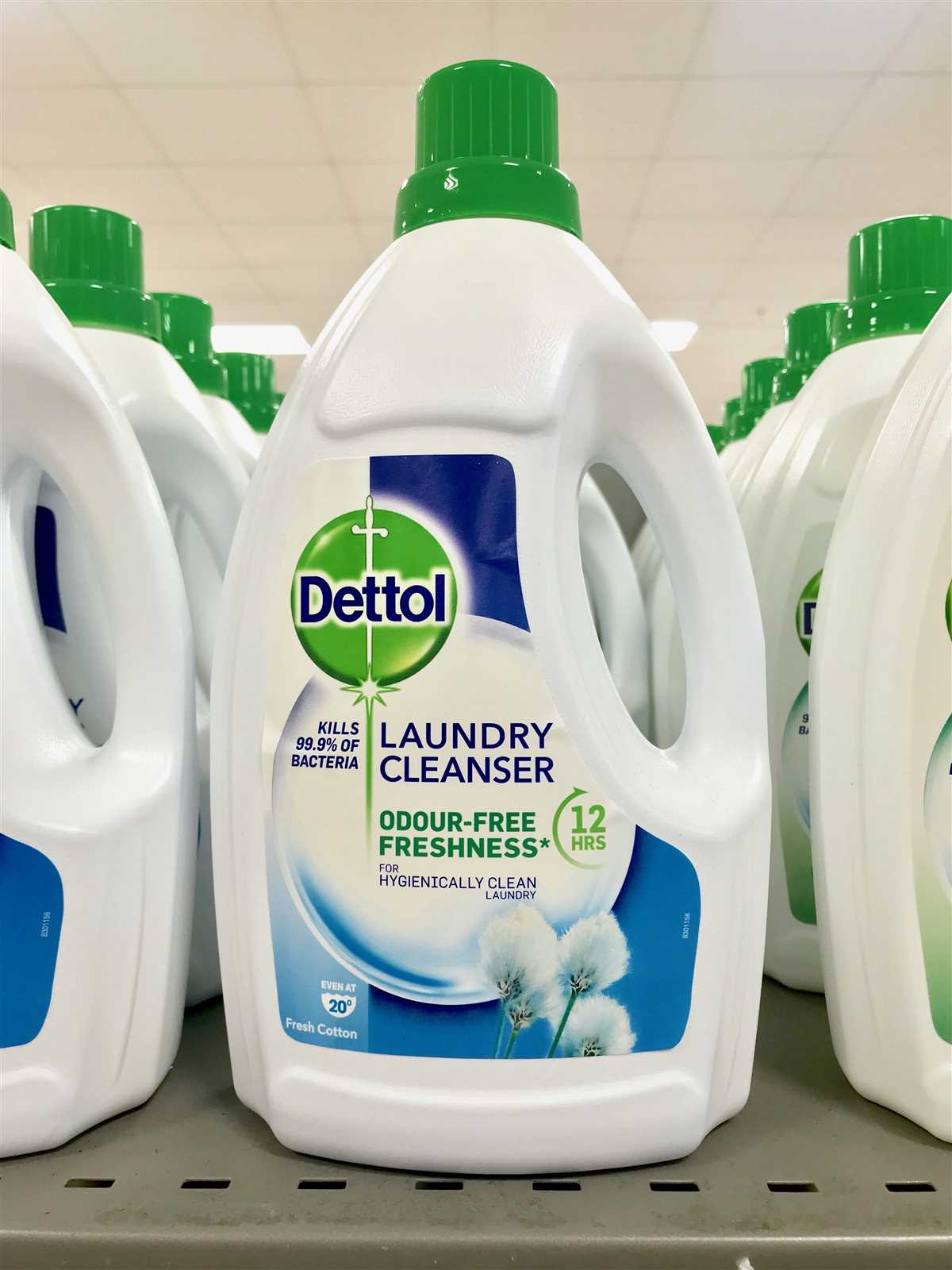




When it comes to keeping our homes clean and germ-free, two of the most popular disinfectants on the market are bleach and Dettol. Both of these products are widely used for their powerful disinfecting properties, but they do have some key differences that should be understood. In this article, we will explore the differences between bleach and Dettol, and how they can be effectively used to keep our homes and surroundings clean and hygienic.
Bleach is a strong chemical compound that is commonly used as a disinfectant and whitening agent. It is typically used to kill bacteria, viruses, and other germs on surfaces and in laundry. Bleach is highly effective in killing a wide range of germs, but it is also important to handle it with care as it can be harmful if not used correctly. Most bleach products come in a liquid form and need to be diluted in water before use.
Dettol, on the other hand, is a brand name for a range of antiseptic and disinfectant products that are commonly used for cleaning wounds and surfaces. It contains a chemical called chloroxylenol, which is effective in killing bacteria and viruses. Dettol products come in various forms such as liquid disinfectants, sprays, and wipes. Unlike bleach, Dettol does not need to be diluted in water and can be directly applied to surfaces or used for first aid purposes.
While both bleach and Dettol are effective at killing germs, it is important to understand that they have different uses and should be used accordingly. Bleach is best suited for disinfecting surfaces, such as kitchen counters and bathroom tiles, while Dettol is more commonly used for personal hygiene and wound care. It is also important to follow the instructions and safety precautions provided on the product labels when using these disinfectants to ensure safe and effective use.
Bleach: A Powerful Disinfectant for Household Cleaning
Bleach is a commonly used disinfectant for household cleaning due to its powerful properties. It is effective in killing a wide range of bacteria, viruses, and fungi, making it an excellent choice for maintaining a clean and hygienic environment.
Benefits of Bleach as a Disinfectant:
- Efficient Germ-Killing: Bleach is known for its ability to kill germs effectively. It can eliminate common household bacteria such as E.coli, Salmonella, and Staphylococcus aureus.
- Virus Protection: Bleach is also effective against viruses, including influenza, herpes, and HIV. It can help prevent the spread of infections and diseases within the household.
- Fungal Control: Bleach can effectively tackle a variety of fungi, including mold and mildew. By using bleach, you can prevent the growth and spread of these common household problems.
- Odor Elimination: Bleach has the ability to neutralize unpleasant odors caused by bacteria and other sources. It can leave your home smelling fresh and clean.
Tips for Using Bleach Safely:
- Proper Dilution: It is crucial to follow the instructions on the bleach bottle for dilution. Using undiluted bleach can be harmful and corrosive.
- Ventilation: When using bleach, make sure the area is well-ventilated. Open windows or use fans to prevent the buildup of fumes.
- Protective Gear: Wear protective gloves and goggles while handling bleach to prevent skin irritation and eye damage.
- Avoid Mixing with other Cleaning Products: Do not mix bleach with ammonia or other household cleaning agents, as it can produce toxic fumes.
- Storage: Store bleach in a cool, dry place, away from direct sunlight. Keep it out of reach of children and pets.
Overall, bleach is a powerful disinfectant that can effectively kill germs, viruses, and fungi. By using it safely and following proper guidelines, you can maintain a clean and hygienic household environment.
What is bleach and how does it work?

Bleach is a chemical compound commonly used for its disinfectant and cleaning properties. It is a powerful oxidizing agent that is effective in killing bacteria, viruses, fungi, and other microorganisms. In household use, bleach is typically used to whiten laundry, remove stains, and sanitize surfaces.
When bleach comes into contact with organic materials such as dirt, grime, or microorganisms, it undergoes a chemical reaction. The active ingredient in bleach, sodium hypochlorite (NaClO), reacts with the proteins in the cell membranes of microorganisms. This reaction disrupts the structure and function of their cellular components, ultimately killing the microorganisms.
Additionally, bleach has the ability to break down pigments and stains by oxidizing them, making them less visible or removing them completely. This is why bleach is commonly used as a stain remover or whitener for clothing and household surfaces.
It is important to note that bleach should be used with caution and according to the instructions provided. It can be harmful if ingested, inhaled, or in direct contact with the skin or eyes. When using bleach, it is recommended to wear protective gloves and eyewear, and to ensure proper ventilation in the area.
Advantages of using bleach for cleaning

-
Effective disinfectant: Bleach is a powerful disinfectant that can eliminate a wide range of bacteria, viruses, and fungi. It can effectively kill germs and prevent the spread of infections.
-
Color-safe: Bleach can be used on both white and colored fabrics without causing significant fading or damage. It is suitable for removing tough stains and keeping your clothes looking clean and bright.
-
Multi-purpose cleaner: Bleach is a versatile cleaning agent that can be used in various areas of your home. It can be used to clean floors, countertops, bathrooms, and kitchen appliances. Its strong disinfecting properties make it effective for sanitizing surfaces.
-
Cost-effective: Bleach is an inexpensive cleaning solution that can be easily found in most stores. Compared to other cleaning products, bleach is a budget-friendly option that can provide excellent results.
-
Stain removal: Bleach is particularly effective at removing tough stains, such as those caused by coffee, tea, or red wine. It can help keep your clothes, linens, and other fabrics looking fresh and stain-free.
Safety precautions when using bleach
When working with bleach, it is important to take certain safety precautions to ensure your well-being. Here are some essential tips to follow:
- Protective clothing: Always wear gloves, goggles, and a protective apron or clothing when handling bleach to protect your skin and eyes from potential harm.
- Ventilation: Ensure that the area where you are using bleach is well-ventilated. Open windows or use fans to circulate fresh air and prevent the build-up of fumes.
- Mixing: Avoid mixing bleach with other chemicals, especially ammonia, as it can create hazardous gases. Stick to using bleach on its own or as directed on the product label.
- Read and follow instructions: Always read the product label and follow the instructions provided. Different bleach products may have specific usage guidelines, dilution ratios, or recommended contact times.
- Keep out of reach of children and pets: Store bleach in a secure place, out of the reach of children and pets, to prevent accidental ingestion or misuse.
- Never consume bleach: Bleach is a toxic substance and should never be consumed. It is meant for cleaning and disinfecting purposes only.
- Dispose of properly: When disposing of bleach, follow local regulations. Avoid pouring bleach down drains or toilets as it may contaminate water sources. Instead, look for community hazardous waste disposal facilities.
By following these safety precautions, you can safely and effectively use bleach for cleaning and disinfection purposes without putting yourself or others at risk.
Dettol: A Trusted Antibacterial Solution for Personal Hygiene
Overview
Dettol is a well-known and trusted brand when it comes to personal hygiene and cleanliness. It offers a wide range of products that help in preventing the spread of bacteria and keeping individuals safe from harmful germs. Dettol’s antibacterial solutions are highly effective in killing germs on the skin, surfaces, and in the environment.
Key Features
Dettol’s antibacterial solution is formulated to provide maximum protection against bacteria, viruses, and other harmful microorganisms. Some of its key features include:
- Antibacterial Properties: Dettol contains active ingredients that have powerful antibacterial properties, making it highly effective in killing germs on contact.
- Wide Range of Products: Dettol offers a wide range of products, including hand sanitizers, soaps, disinfectants, and wipes, ensuring that individuals have access to the right solution for their personal hygiene needs.
- Gentle on Skin: Despite its strong germ-killing properties, Dettol is gentle on the skin and does not cause any irritation or dryness.
- Proven Effectiveness: Dettol has been tested and proven to effectively kill a wide range of bacteria, including E. coli, Salmonella, and Staphylococcus aureus.
Usage and Benefits
When used as directed, Dettol provides numerous benefits for personal hygiene, including:
- Protection Against Infections: Dettol’s antibacterial solution helps in preventing the spread of infections by killing bacteria and viruses on the skin and surfaces.
- Convenient and Portable: Dettol offers various product sizes that are convenient and portable, allowing individuals to maintain personal hygiene wherever they go.
- Peace of Mind: By using Dettol, individuals can have peace of mind knowing that they are taking necessary precautions to protect themselves and their loved ones from harmful germs.
Conclusion

Dettol is a trusted brand that offers effective antibacterial solutions for personal hygiene. With its wide range of products and proven effectiveness, Dettol helps individuals maintain cleanliness and prevent the spread of harmful bacteria and viruses. By incorporating Dettol into their hygiene routine, individuals can stay protected and maintain good health.
What is Dettol and what does it do?
Dettol is a brand of antiseptic disinfectant that is commonly used for cleaning and preventing the growth of bacteria and viruses on surfaces as well as on the skin. It is known for its powerful germ-killing and cleaning properties, making it popular among households and medical professionals.
Dettol products typically contain active ingredients such as chloroxylenol, which is effective against a wide range of bacteria and viruses. It works by disrupting the cell walls of microorganisms, causing them to burst and die. This makes it a reliable choice for disinfecting wounds, cleaning surfaces, and promoting good hygiene.
Dettol is available in various forms, including liquid solutions, sprays, and wipes, allowing for different methods of application depending on the specific cleaning or hygiene needs. It is commonly used for disinfecting wounds, cleaning household surfaces, and maintaining personal hygiene.
Some common uses of Dettol include:
- Disinfecting cuts, scratches, and minor wounds to prevent infection.
- Cleaning and disinfecting kitchen surfaces, bathroom surfaces, and other high-touch areas in the household.
- Adding a small amount to laundry loads for added disinfection.
- Using as a hand sanitizer in situations where soap and water are not readily available.
It is important to follow the instructions provided with Dettol products to ensure safe and effective use. Additionally, it is recommended to keep Dettol out of reach of children and to avoid direct contact with eyes and sensitive areas of the skin.
How is Dettol different from bleach in terms of usage and benefits?
Dettol and bleach are both commonly used household cleaning products, but they differ in terms of their usage and benefits. Here is a comparison of the two:
Usage:
- Dettol is primarily used as an antiseptic and disinfectant. It can be applied to wounds and cuts to prevent infection.
- Bleach, on the other hand, is primarily used as a cleaning agent. It is often used to remove stains, whiten clothes, and disinfect surfaces.
Benefits:
Dettol offers the following benefits:
- Antiseptic properties: Dettol can kill bacteria and other microorganisms, helping to prevent infection.
- Disinfection: Dettol can be used to disinfect surfaces, such as countertops and bathroom fixtures.
- Skin-friendly: Dettol is gentle on the skin and can be used safely for wound cleaning and personal hygiene.
Bleach, on the other hand, offers the following benefits:
- Powerful cleaning agent: Bleach is highly effective in removing tough stains, such as those caused by coffee or red wine.
- Whitening: Bleach can be used to whiten clothes and remove yellowing or discoloration.
- Disinfection: Bleach is a strong disinfectant and can kill a wide range of bacteria, viruses, and fungi.
It is important to note that both Dettol and bleach should be used according to their instructions and with caution. They should be kept out of reach of children and not ingested or applied to sensitive areas of the body.
Conclusion:

In summary, Dettol and bleach differ in terms of their usage and benefits. Dettol is primarily used as an antiseptic and disinfectant, while bleach is used as a cleaning agent and disinfectant. Both products have their own unique benefits and should be used responsibly and safely.
FAQ
What is Bleach?
Bleach is a chemical compound that is commonly used as a household disinfectant and laundry whitener. It contains sodium hypochlorite, which acts as a powerful oxidizing agent and kills bacteria, viruses, and fungi.
What is Dettol?
Dettol is a brand of antiseptic and disinfectant products that are used for cleaning and wound care. Dettol contains chloroxylenol, which has antimicrobial properties and helps in killing germs on skin and surfaces.
Which one is better for disinfection, Bleach or Dettol?
Both Bleach and Dettol are effective for disinfection, but they have different uses. Bleach is more suitable for disinfecting surfaces, such as countertops and floors, while Dettol is better for personal hygiene and wound care. It is important to follow the instructions on the product label for proper usage.
Can Bleach and Dettol be used interchangeably?
No, Bleach and Dettol cannot be used interchangeably because they have different chemical compositions and uses. Bleach is a stronger disinfectant and can damage certain materials, while Dettol is milder and safer for use on skin.
Can Bleach and Dettol kill the coronavirus?
Yes, both Bleach and Dettol can kill the coronavirus. The Centers for Disease Control and Prevention (CDC) recommends using a diluted bleach solution or an alcohol-based disinfectant, such as Dettol, to effectively kill the virus on surfaces.
Are there any precautions to take when using Bleach or Dettol?
Yes, there are precautions to take when using Bleach or Dettol. It is important to wear gloves and use these products in a well-ventilated area to avoid inhaling the fumes. It is also essential to follow the instructions on the product label and not mix them with other cleaning agents, as it can produce harmful gases.












